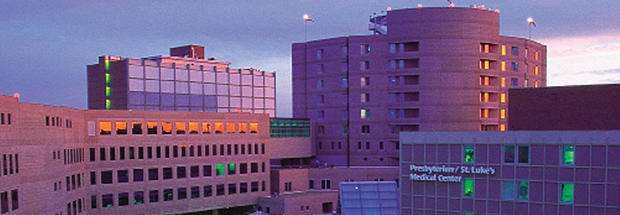Presbyterian/St. Luke's Implements Precautions To Stop Spread Of MRSA
DENVER (CBS4) - The Hospital Corporation of America recently released information on a national study to prevent methicillin-resistant staphylococcus aureus (MRSA) in hospitals.
The study concentrated on the intensive care unit.
All the HealthONE hospitals, including Presbyterian/St. Luke's Medical Center, have implemented the recommended precautions to help stop the spread of MRSA.
Presbyterian/St. Luke's issued a news release with questions and answers from Chief Medical Officer Dr. Steve Quach. Read the release below:
Q: What is the universal approach P/SL is taking to fight MRSA in the ICU?
Quach: "P/SL uses a multi-pronged approach. The first and most basic step is proper hand hygiene. Healthcare providers should use antimicrobial gel/foam or wash their hands with soap and water before and after each patient encounter. In our ICUs, patients are given baths using chlorhexidine soaked cloths to eradicate MRSA that may be colonizing their bodies even if it is not causing infection. We are also moving to treat the nasal passages of all ICU patients with an antimicrobial gel as MRSA can colonize the nares. When patients at P/SL are found to be infected or colonized with MRSA, they are placed in contact precautions which dictate that staff wear gloves and gowns when entering these rooms to avoid spread of the MRSA. Additionally, we have an antimicrobial stewardship program in which Infectious Disease physicians review all antibiotics given at P/SL. They then make recommendations to the ordering physicians to ensure that we are not creating antibiotic resistance and that we use the proper antibiotics to treat resistant organisms like MRSA."
Q: Talk about the broader issue of drug resistant organisms. How do these precautions help in the battle against drug resistant organisms?
Quach: "The measures detailed in the question above are effective for all multi-drug resistant organisms (MDROs) with slight modifications. As more and more bacteria are becoming resistant to antibiotics, there is concern that the pipeline of new antibiotics is insufficient to keep up with the need. Therefore, strict adherence to the measures described above is essential to prevent the spread of MDROs."
Q: Describe the anti-microbial stewardship program at P/SL. How does this help our patients?
Quach: "When antibiotics given to patients that do not need them either because they do not have a bacterial infection or a newer/stronger antibiotic is being used unnecessarily, antibiotic resistance can develop in bacterial. By reviewing the use of every antibiotic at P/SL, our Infectious Disease experts make sure that we avoid creating resistant organisms whenever possible. They also ensure that patients being treated for MDROs are receiving the most effective antibiotics to cure the infection."
Q: How does having a dedicated team of Infectious Disease physicians and clinical staff at P/SL help in the fight against these infections?
Quach: "Absolutely, our team of Infectious Disease physicians and clinical staff are well versed with these organisms and infections. Their experience and expertise ensures the best outcomes for our patients and the community as a whole."
Q: What questions should families/patients ask about MRSA while in the hospital?
Quach: "No specific questions. Just remind your healthcare providers to practice good hand hygiene and if they do have any questions, don't be afraid to ask!"




